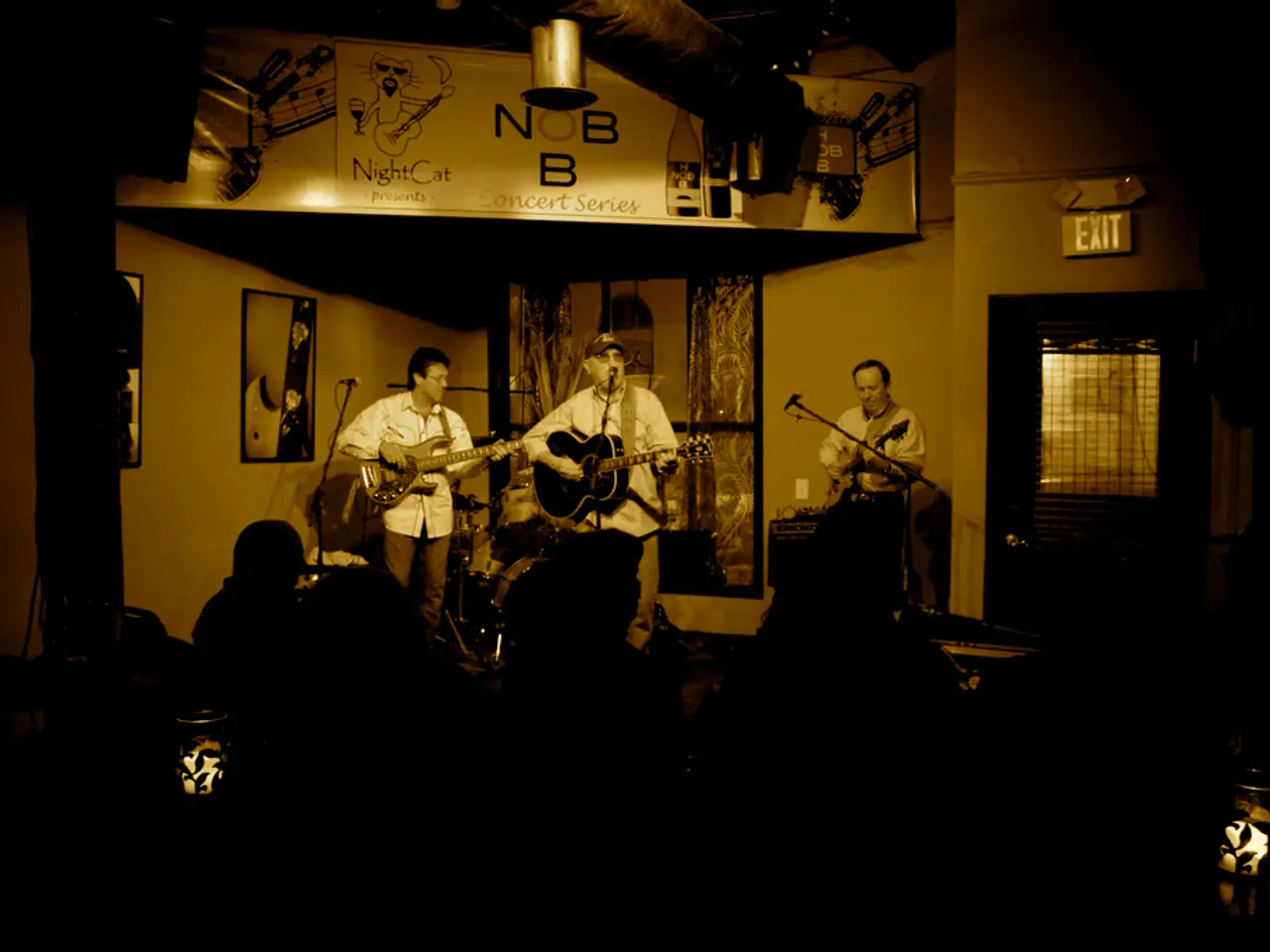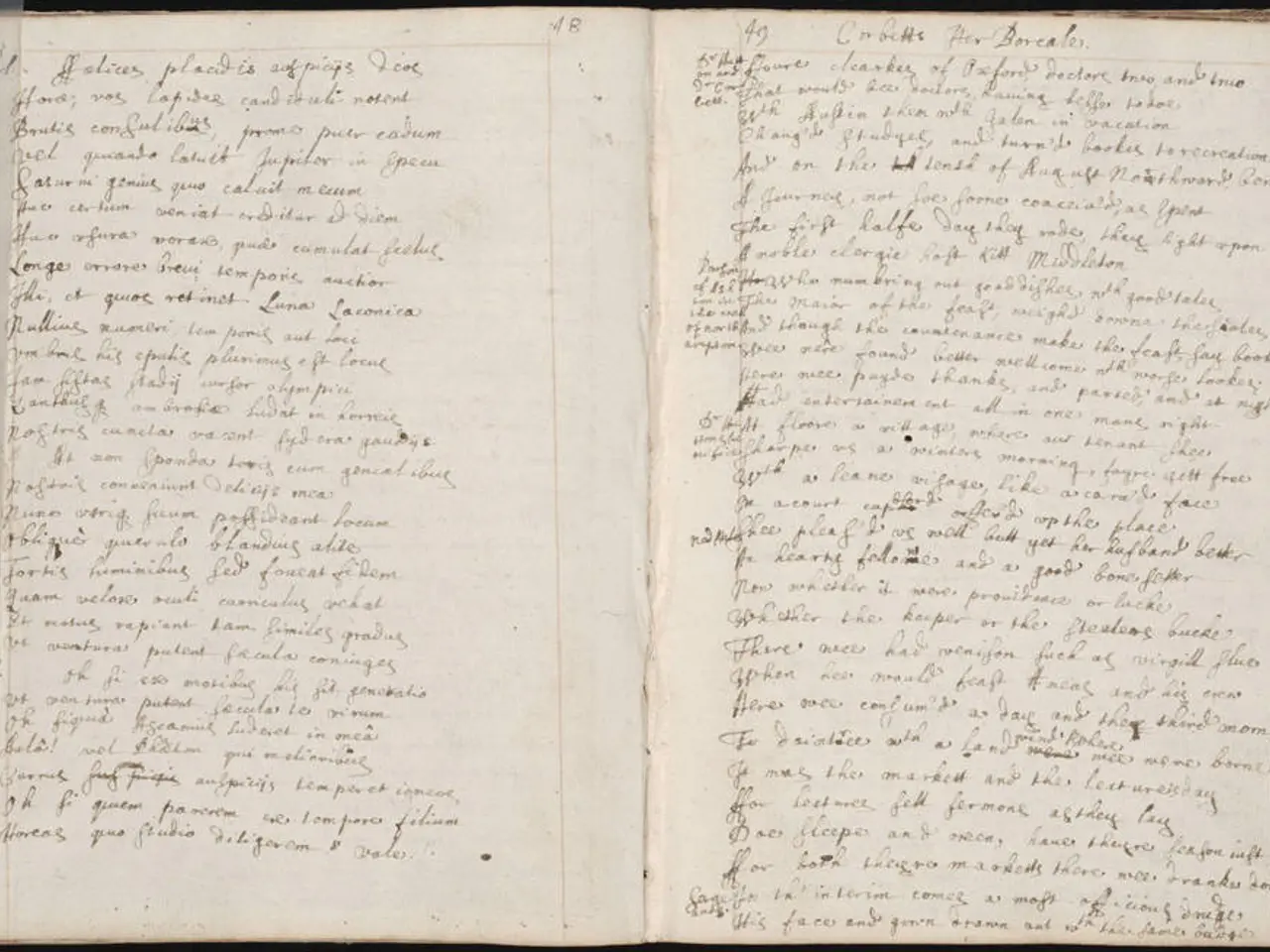Fela Kuti's Offspring Couldn't Use Terms Like 'Dad' or 'Father' - Made Kuti Explains the Circumstances Leading to Fela's Financial Struggles
In the heart of Nigeria's vibrant music scene, Fela Anikulapo-Kuti, a legendary figure, lived a life marked by extreme generosity, activism, and unwavering commitment to his beliefs. However, these virtues led him to die a relatively impoverished man, despite his substantial earnings during his lifetime.
Fela, who passed away on August 2, 1997, at the age of 58, was known more for his activism and music than for financial accumulation. His house, in Kalakuta, was an open door to anyone from the street, a policy that allowed strangers to walk in without hesitation. His grandson, Made Kuti, recounted that Fela had enough money to buy an entire street but freely gave away his wealth to those in need, often opening a box of cash for strangers to take from when they visited his home.
This generosity extended to his treatment of people around him. Fela believed in equality, and everyone, including his children, was treated as equals in his home. His children were not allowed to call him 'dad' or 'father', a testament to his egalitarian approach.
Despite his international acclaim, Fela seemed to be more appreciated overseas than in his native Nigeria during his lifetime. His activism against the Nigerian government, which often led to political persecution, including imprisonment, may have contributed to his local reputation.
Fela's sons, Femi and Seun Kuti, have shared their memories of their father. Femi once told the press that one of his father's albums was rubbish, while Seun stated that Fela never fought the Nigerian government. Contrary to popular belief, Fela spoilt Seun during his upbringing, according to Seun himself.
In the face of the current generation's tendency to 'Japa', or leave Nigeria in search of better opportunities, Femi Kuti urged the youth to stay and fight for their country. He believed in standing firm and working towards change within Nigeria.
Fela's life and death serve as a poignant reminder of the power of generosity and the cost of standing up for one's beliefs. Despite his poverty at the time of his death, Fela's legacy continues to inspire and resonate, not just in Nigeria, but across the globe.
[1] Made Kuti's statement about Fela's financial situation. [2] Fela's activism and political persecution. [3] Fela's death due to complications from AIDS. [4] Additional context on Fela's life and career.
[1] Made Kuti, Fela's grandson, told of his grandfather's extreme generosity, stating that despite having enough money to buy an entire street, Fela freely gave away his wealth to those in need.
[2] Fela's life was marked by activism and his constant battle against the Nigerian government, which often resulted in his political persecution, including imprisonment.
[3] Tragically, Fela Anikulapo-Kuti passed away on August 2, 1997, at the age of 58, due to complications from AIDS.
[4] Beyond his music and activism, Fela's life and death are a testament to the power of generosity, the cost of standing up for one's beliefs, and the lasting influence of a man who left an indelible mark on Nigeria's pop-culture, entertainment, and the global Nollywood scene, known colloquially as 'naija'.







